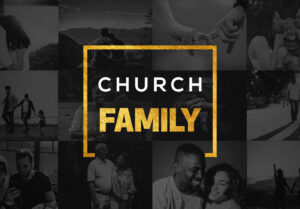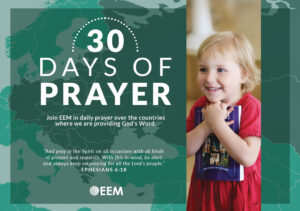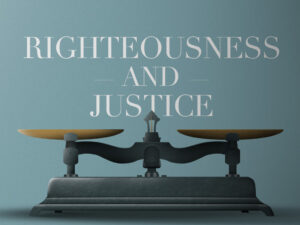Life Together
 So far in our Sunday evening study of Theology, we have talked about the church and our part in God’s mission and who God is. Currently we are thinking about who Jesus is and what He does. As we gradually put these pieces together, we see a bigger picture come into focus.
So far in our Sunday evening study of Theology, we have talked about the church and our part in God’s mission and who God is. Currently we are thinking about who Jesus is and what He does. As we gradually put these pieces together, we see a bigger picture come into focus.God intends for His mission today to be working through His church. He longs for us to unify as a team in that work. We know that because we are made in His image. He exists in perfect community. To help us see more clearly how to walk in the way He designed for us, we have the example of the life of Jesus. We talked just last Sunday about ways that we should follow that example.
As people set out to be more like Jesus, many make the mistake of trying to do it alone. In the book, Creating a Missional Culture: Equipping the Church for the Sake of the World, J.R. Woodward explains how the need to go alone has been ingrained in us, and why God instead wants us to walk in community.
“Individualism saturates American culture to the point that we no longer notice it. Individualism tells us we can become more like Jesus by ourselves, through a self-help program or more effort. But the gospel tells us transformation happens as we embrace the work of the Spirit in our lives together. Becoming more like Jesus is not a matter of trying but yielding, setting the sails of our lives to catch the wind of the Spirit. It happens when we develop a communal rhythm of life—a collection of thick, bodily (church) practices that engage our senses, grab our hearts, form our identities and reshape our desires toward God and his kingdom. As we collectively engage in grace-filled spiritual practices, we cultivate particular environments that help to create a missional culture, which in turn reshapes us.”
In a society that values individualism so much, let’s remember that we are better together. Scripture teaches us about one another, because God intends for us to work together in His mission in the world.
Brian
A Place to Belong
 Belonging can be a conundrum. At Southwest, we have a large number of members who have extended family who are also members. I have been here for over five years, and it is not unusual even now to find out about a member’s family relation to another member that I was unaware of. Many churches are like this. This means many church members are already very connected through family bonds, but some of us might struggle finding a place to belong.
Belonging can be a conundrum. At Southwest, we have a large number of members who have extended family who are also members. I have been here for over five years, and it is not unusual even now to find out about a member’s family relation to another member that I was unaware of. Many churches are like this. This means many church members are already very connected through family bonds, but some of us might struggle finding a place to belong.There are lots of things that you can do to strengthen your sense of belonging within a congregation. Consider these four ways to get better connected.
- Consistent worship service attendance: Obviously the focus of our worship time should be coming before God to glorify Him. His grace provides blessings to us during that time as well. Being there connects us with the mission and direction of the church. It is a time to be encouraged and a time to be together.
- Bible class or group participation: Worship service attendance is just the starting point of our weekly connection. Bible class takes that attendance to another level by increasing the depth of our Bible study. It also serves as another group connection with fewer people. This provides an opportunity for interaction and accountability.
- Fellowship: Meals and activities at the church building are a good starting point, but true fellowship moves beyond that. In Acts 2:46, church members were together “day by day, attending the temple together and breaking bread in their homes.” Don’t wait for the next church-wide fellowship event. Spend time getting to know someone better.
- Ministry involvement: This is more than just the people we see up front on Sundays. There are numerous areas where you can serve and maybe even some we have not thought of yet. The teachings of Jesus were never intended to simply give more knowledge. They are things to be put into practice. When we work together, we make lasting bonds.
In the beauty of God’s design for the church, belonging will benefit you, the church and our part in God’s mission. You are needed, valued and loved. You belong here!
Brian
Another Good Samaritan
 Usually when we think of the Good Samaritan, we think of the story about peril, rescue and kindness that Jesus tells in Luke 10. The unlikely hero of the story is a Samaritan who does more than is expected. It is not the only story in Luke’s gospel about a Samaritan doing the right thing. In Luke 17, Jesus meets ten lepers whose lives are forever changed.
Usually when we think of the Good Samaritan, we think of the story about peril, rescue and kindness that Jesus tells in Luke 10. The unlikely hero of the story is a Samaritan who does more than is expected. It is not the only story in Luke’s gospel about a Samaritan doing the right thing. In Luke 17, Jesus meets ten lepers whose lives are forever changed.On the way to Jerusalem he was passing along between Samaria and Galilee. And as he entered a village, he was met by ten lepers, who stood at a distance and lifted up their voices, saying, “Jesus, Master, have mercy on us.” When he saw them he said to them, “Go and show yourselves to the priests.” And as they went they were cleansed. Then one of them, when he saw that he was healed, turned back, praising God with a loud voice; and he fell on his face at Jesus’ feet, giving him thanks. Now he was a Samaritan. Then Jesus answered, “Were not ten cleansed? Where are the nine? Was no one found to return and give praise to God except this foreigner?” And he said to him, “Rise and go your way; your faith has made you well. (Luke 17:11-19 ESV)
“Where are the nine?”
Are we the one or the nine?
Everything about their lives was forever changed. They could rejoin society. They could fellowship with the spiritual community again. The impossible was now possible, and it was all because of the power and compassion of Jesus. The Samaritan former leper saw that clearly and could not contain his praise and thankfulness. It is exactly the right reaction, but “Where are the nine?”
Maybe the transformation in our lives does not seem as miraculous as the healing of the lepers, but it is actually even greater. We have been taken from death to life by the same power that made these lepers clean. Are we thankful? Do we praise God for what He has done? Do we tell others about Him?
You are forever changed. Thank God every day for what He has done in your life. Let His praise overflow, because it can not be contained. Follow the example of another good Samaritan.
You are forever changed. Thank God every day for what He has done in your life. Let His praise overflow, because it can not be contained. Follow the example of another good Samaritan.
Brian
Remember Your One
 In 2020, I first asked you the question, “Who’s your one?” We talked about it from time to time, had a box full of names in the foyer, prayed for people by name and saw some of our ones visit and even be baptized into Christ. Most weeks the question has remained on the back page of our bulletin. Since we have added new faces over the years, and some of us just need a reminder; I thought it might be a good time to explain again what the question is about and why it matters.
In 2020, I first asked you the question, “Who’s your one?” We talked about it from time to time, had a box full of names in the foyer, prayed for people by name and saw some of our ones visit and even be baptized into Christ. Most weeks the question has remained on the back page of our bulletin. Since we have added new faces over the years, and some of us just need a reminder; I thought it might be a good time to explain again what the question is about and why it matters.If you were to ask other Christians to tell you the story of how they came to follow Christ, you might occasionally find someone who was invited to a gospel meeting or answered a knock on their door from a stranger there to talk about Jesus. The vast majority of people will tell you about a person or people that they know. It’s usually a friend, relative, neighbor or co-worker who introduced them to the gospel or lived in such a way to start the conversation. Each of us has a person in our lives who needs to know Jesus. We are the people who could be part of that person’s story of coming to know Him. That person is our one. For those of us who already thought of that one in 2020, let’s keep praying and looking for opportunities. For the rest of you, who’s your one? How can we be more intentional about reaching our ones?
In his book, Everyday Evangelism, Randy Becton offers some advice on how we can become better witnesses for Jesus in our daily lives.
- Make a list of people in your circle of influence for whom you will pray.
- Seek to model a Christ-honoring life before them.
- As you interact with them, attempt to understand their world—their hopes, frustrations and fears.
- Build friendships with them and the significant people in their lives—especially their family.
- Watch for opportunities to serve the people and their families for whom you are praying.
- Seize every opportunity to tell the story of what Jesus has done for you and for them.
God loves you, and God loves your one.
Brian
Thinking About God
 On Sunday evenings this year we are looking at several topics dealing with aspects of theology. For the first five weeks, we talked about the church and its mission. We have asked and answered the question, “Who are we and what are we here for?” Starting this Sunday evening, we will spend several weeks talking about who God is and who He is not. When I consider this topic, I am reminded of a quote from A.W. Tozer that I heard several years ago. “What comes to mind when we think about God is the most important thing about us.”
On Sunday evenings this year we are looking at several topics dealing with aspects of theology. For the first five weeks, we talked about the church and its mission. We have asked and answered the question, “Who are we and what are we here for?” Starting this Sunday evening, we will spend several weeks talking about who God is and who He is not. When I consider this topic, I am reminded of a quote from A.W. Tozer that I heard several years ago. “What comes to mind when we think about God is the most important thing about us.”What comes to mind when you think about God?
In his book, In the Great Stream: Imagining Churches of Christ in the Christian Tradition, Leonard Allen shares research from Christian Smith about how some view God in our current times.
“In his extensive study of youth and religion, Smith concluded that MTD (moralistic therapeutic deism)–with it’s range of variations–tends to be the operative religion of American young people in the twenty-first century. This new reduced Christianity has three features: it isMoralistic–God wants be to be a good person.Therapeutic–God or religion should help me feel good.Deistic–God is a concept to adorn our lives but not an agent who really does anything.”
In a world where far too many people think of God this way (even many who are Christians), it is incredibly important that we understand who He really is. If we have that understanding, we can help others see that the MTD version of Christianity falls short of the God we serve. He is so much more.
– Brian
Why These Guys?
 Last Sunday morning, we looked at Luke’s account of the calling of the apostles of Jesus. Every time I consider these twelve men, I think of how differently I would have chosen them. I have always thought to myself that Jesus knew what He was doing and saw things in these men that I did not. After all, to Israel Saul looked much more like a king than David did. God saw something else. What had not occurred to me until recently is that whether Jesus saw something in them or not, He was not alone in the choice of who or how many. It was the Father’s plan. Henry and Richard Blackaby point this out in their book, Spiritual Leadership.
Last Sunday morning, we looked at Luke’s account of the calling of the apostles of Jesus. Every time I consider these twelve men, I think of how differently I would have chosen them. I have always thought to myself that Jesus knew what He was doing and saw things in these men that I did not. After all, to Israel Saul looked much more like a king than David did. God saw something else. What had not occurred to me until recently is that whether Jesus saw something in them or not, He was not alone in the choice of who or how many. It was the Father’s plan. Henry and Richard Blackaby point this out in their book, Spiritual Leadership.“Scripture says Jesus spent an entire night praying before he singled out his disciples. (Luke 6:12-13) On the night of his crucifixion, Jesus reiterated that the Father had chosen the disciples. (John 17:6-7) Jesus did not choose twelve disciples as a matter of strategy. Nor was twelve an optimum number Jesus calculated for pedagogical reasons. He had a dozen disciples for one reason only: that’s how many his Father gave him. Would Jesus have included Judas if he were simply implementing a discipleship strategy designed to multiply his efforts? No. Judas was given to Jesus as a part of God the Father’s redemptive plan. According to Jesus, even the teaching he gave his disciples came from the Father (John 6:49–50; 14:10; 15:15; 17:8).”
Jesus prays all night before calling the disciples and thanks the Father for them on the night He is crucified. Jesus is an example to us in many ways. Here we can see from His example that the Father’s plan should always be above our own.
– Brian
“In these days he went out to the mountain to pray, and all night he continued in prayer to God. And when day came, he called his disciples and chose from them twelve, whom he named apostles.” – Luke 6:12-13
“I have manifested your name to the people whom you gave me out of the world. Yours they were, and you gave them to me, and they have kept your word. Now they know that everything that you have given me is from you.” – John 17:6-7
Church Family
 This week I read an interview about how churches often struggle to work within an increasingly secular culture. One statement made by Canadian theology scholar Geoffrey Ready really stuck out to me.
This week I read an interview about how churches often struggle to work within an increasingly secular culture. One statement made by Canadian theology scholar Geoffrey Ready really stuck out to me.“People are now finding genuine spiritual connections and answers to big questions in places like SoulCycle and CrossFit, in maker groups and arts groups, in social justice movements, and so forth. That’s where they’re turning for their major life moments—births and deaths, or when somebody gets cancer and they want to raise money or get support. Traditionally, before the last few centuries, this happened in Christian churches, in communities formed in and around the kingdom of God breaking into this world. Somehow, for a considerable period of time now, we’ve been missing that sense of embodied, deeply interconnected human community.”
I’ll have to admit that I recoiled a little when I read that. First I wanted to deny it could be true. Although it might be less prominent in a place like Ada, it is becoming a more normal thing. I wanted to think of all the cultural things I might blame for it. At the same time, I can think of the gradual move in this direction. People have sought connection in coffee shops, diners and clubs for years.
Don’t get me wrong. Connections in those places and organizations are fine, but they are not a substitute for the church. God’s design for His people—His FAMILY—has always been the church. The big joys and sorrows in life are shared in the church. The difficult questions and doubts are wrestled with in the church. We learn more about Him and grow closer to Him in the church. Church is not the building, the program or the event. We are family.
– Brian
“Now the full number of those who believed were of one heart and soul.” – Acts 4:32a
How Does This Happen?
 During my recent tour of historical sites and museums related to the civil rights movement, a question echoed in my mind several times: “How does this happen?” Of course that question brought up others. How do people see other groups as less than human? Why are there not more people who stand against injustice? As uncomfortable as that era of history might be to consider, there are many more like it. How does this happen?
During my recent tour of historical sites and museums related to the civil rights movement, a question echoed in my mind several times: “How does this happen?” Of course that question brought up others. How do people see other groups as less than human? Why are there not more people who stand against injustice? As uncomfortable as that era of history might be to consider, there are many more like it. How does this happen?The New Testament (especially Paul’s letters) would tell us that root of the problem is sin. More specifically, the problem is putting anything or anyone else in the place of God. In his book, Confronting Injustice Without Compromising Truth, Thaddeus Williams relates the problem of injustice in our world to Paul’s words from the first chapter of Romans.
“He does not merely note that humanity is ‘full of envy, murder, strife, deceit, [and] maliciousness,’ (verse 29) then blame all that injustice on society and dream up a utopian political solution the way Karl Marx and Friedrich Engels did. Paul does not look at the bad fruit on the human tree and then suggest replanting it in the different soil of some new political ideology. Paul knows that the human tree is so hopelessly sick that whatever soil you plant it in, toxic fruit will form. No amount of political revolution, social engineering, or policy tweaking will stop envy, strife, deceit, and maliciousness from sprouting out of our sick hearts. Why were all the utopias of the modern era doomed to fail? Because the evil did not originate in politics, society, or the economy. It is expressed there, but evil originates in human hearts that ‘exchanged the glory of the immortal God for images resembling mortal man and birds and animals and creeping things.’ This, then, is how Paul adds deeper hues to our picture of injustice. Look deep enough underneath any horizontal human-against-human injustice and you will always find a vertical human-against-God injustice, a refusal to give the Creator the worship only the Creator is due. All injustice is a violation of the first commandment.”
God’s place in our lives is above everything and everyone else, including ourselves. Living with that in mind can help us see people as bearers of His image. We honor Him by loving them.
– Brian
“You shall have no other gods before me.” – Exodus 20:3
EEM 30 Days of Prayer
 Each fall we have a contribution for EEM’s Million Dollar Sunday. It is their largest fundraising effort of the year in their effort to print and distribute Bibles to people in more than 30 nations. In 2021, Southwest gave $20,139, which provided 4027 Bibles!
Each fall we have a contribution for EEM’s Million Dollar Sunday. It is their largest fundraising effort of the year in their effort to print and distribute Bibles to people in more than 30 nations. In 2021, Southwest gave $20,139, which provided 4027 Bibles!As we prepare for this year’s Million Dollar Sunday, we will begin 30 Days of Prayer on September 18 for the countries where these Bibles will be given. There are prayer guides with a schedule and information about each country available in the foyer. You can also follow along on our social media pages. We will begin today by praying for the people of Albania. On Sunday evening, October 9, Lanny Tucker from EEM will be here to talk about the work they are doing to share the good news. Our Million Dollar Sunday contribution will be on Sunday, October 16. We will complete our 30 Days of Prayer the following day. Let’s make this our best year yet!
Brian
Righteousness and Justice
 As we talked about last Sunday, the ideas of righteousness and justice are intertwined in scripture. In fact, in the New Testament both of the English words come from the same Greek root. They are translated interchangeably depending on the context. Based on this connection, it would stand to reason that any followers of Christ who believe that righteousness is important should also place a great value on justice. In their book, The Justice Calling: Where Passion Meets Perseverance, Hoang and Johnson explain how this relates to God and people in both positive and negative ways.
As we talked about last Sunday, the ideas of righteousness and justice are intertwined in scripture. In fact, in the New Testament both of the English words come from the same Greek root. They are translated interchangeably depending on the context. Based on this connection, it would stand to reason that any followers of Christ who believe that righteousness is important should also place a great value on justice. In their book, The Justice Calling: Where Passion Meets Perseverance, Hoang and Johnson explain how this relates to God and people in both positive and negative ways.“The two greatest commandments identified by Jesus—to love God and to love your neighbor as yourself—are the flip side of the two most prevalent sins throughout Scripture: idolatry and injustice. Failing to love God leads to idolatry, while failing to love others leads to injustice. Another way of putting this is to say that the call to love God and love our neighbors is a call to righteousness and justice.”
Based on that idea, it would stand to reason that any followers of Christ who want to avoid idolatry should also believe that it is important to avoid injustice. We live in a world that celebrates and even encourages idolatry. Injustices are all around us. Many of us have experienced them, although we may tend to minimize the ones we do not see as important or that do not affect us directly. God wants us to be concerned about all idolatry and injustice. He wants us to work actively to correct them and to instead promote righteousness and justice. Let’s join Him in that work.
Brian
“But now the righteousness of God has been manifested apart from the law, although the Law and the Prophets bear witness to it— the righteousness of God through faith in Jesus Christ for all who believe. For there is no distinction: for all have sinned and fall short of the glory of God, and are justified by his grace as a gift, through the redemption that is in Christ Jesus, whom God put forward as a propitiation by his blood, to be received by faith. This was to show God’s righteousness, because in his divine forbearance he had passed over former sins.” – Romans 3:21-25

